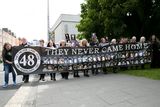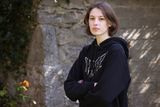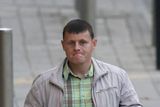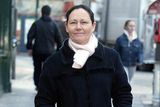Patients given shock therapy without their permission
Patients have been given shock treatment without permission. Picture posed. Thinkstock
ELECTRIC shock treatment was given to 27 psychiatric patients in one year without their permission, a new report has revealed.
They were among 244 people who were given electroconvulsive therapy (ECT) during the year, including one 92-year-old patient, the 2012 report of state watchdog the Mental Health Commission showed.
The therapy involves passing electric currents through the brain intentionally triggering a seizure, and it often works when other treatments are unsuccessful.
Although safer than in the past, it still causes side effects such as memory loss.
A large proportion of the programmes were administered by the private St Patrick's Hospital and St John of God Hospital in Dublin. Waterford Regional Hospital also recorded high usage.
John Saunders, chairman of the commission, expressed concern at the high numbers of patients who are still being given the treatment without their consent – including one person who was unaware it was being administered because of their illness.
"It is our view that it should not be possible to administer the treatment to a patient who is unwilling to receive it," he said.
He said 311 programmes were administered to 244 patients during 2012, a fall of 6.3pc on 2011. Patients who received it ranged in age from 24 to 92 and more women (62.7pc) than men (37.3pc) were given the therapy.
More than a third of the patients had a complete recovery afterwards and another third showed significant improvement.
Around 17.4pc showed moderate improvement but there was no change or deterioration for 7.4pc.
The report showed that there were 1,403 occasions when staff resorted to seclusion of a patient. The use of seclusion decreased for the fifth year in a row, with a 16.6pc fall compared with 2011.
Most episodes of seclusion lasted less than eight hours but a small number were for longer than three days. Over half of those placed in seclusion were between 18 and 39 while 10 of the patients were children.
SECLUSION
St Joseph's Intellectual Disability Service recorded the highest number of episodes of seclusion (231) in 2012, involving 15 individual patients.
There were a total of 3,063 recorded occasions of physical restraint of a patient in 52 centres. St Vincent's Hospital in Fairview, Dublin, reported the highest number of episodes.
Mr Saunders said that while progress has been made on seclusion and restraint he "would like to see that number reduced further".
"These are emergency measures and should only be used in exceptional circumstances and only when in the best interests of the patient," he added.
Join the Irish Independent WhatsApp channel
Stay up to date with all the latest news















